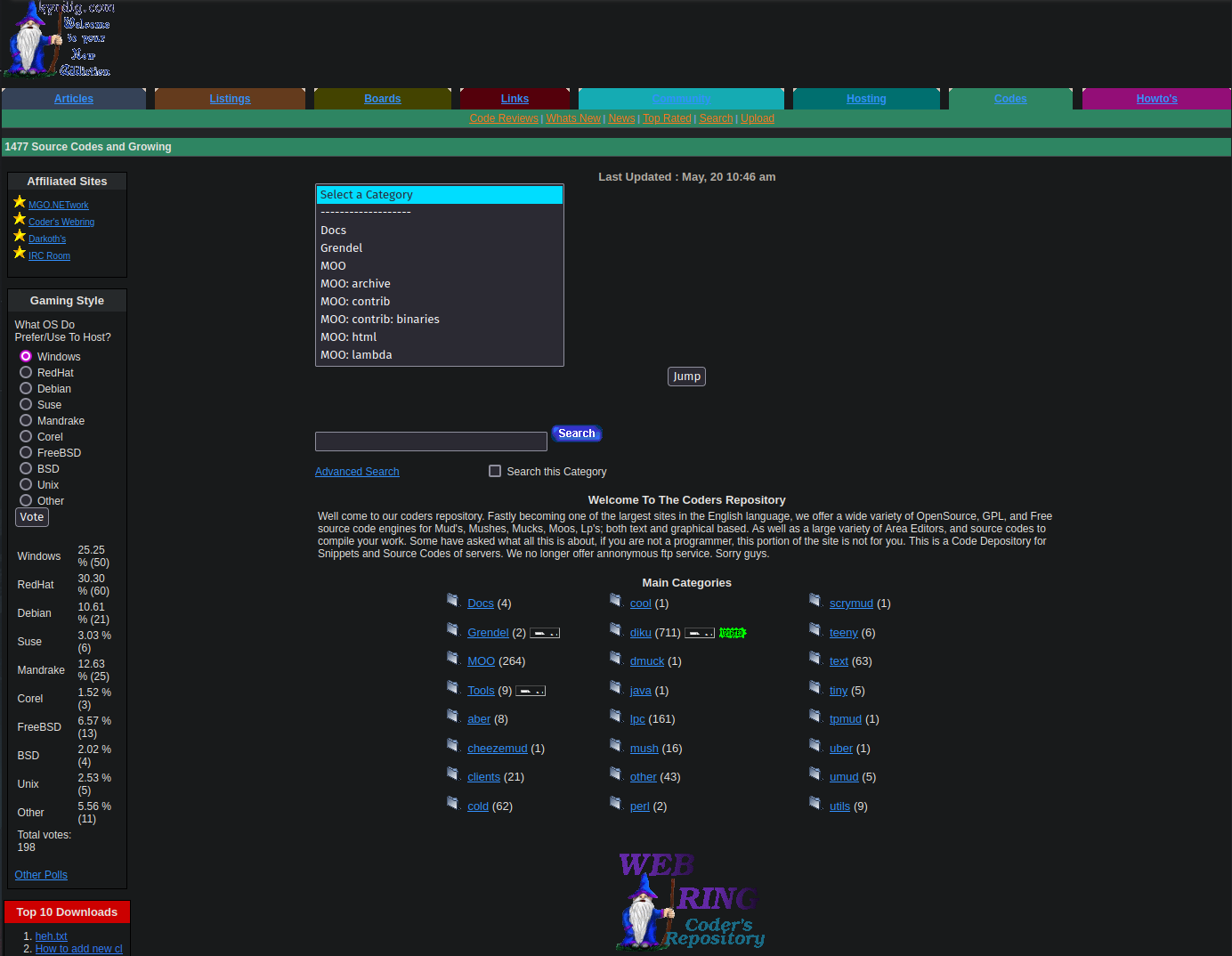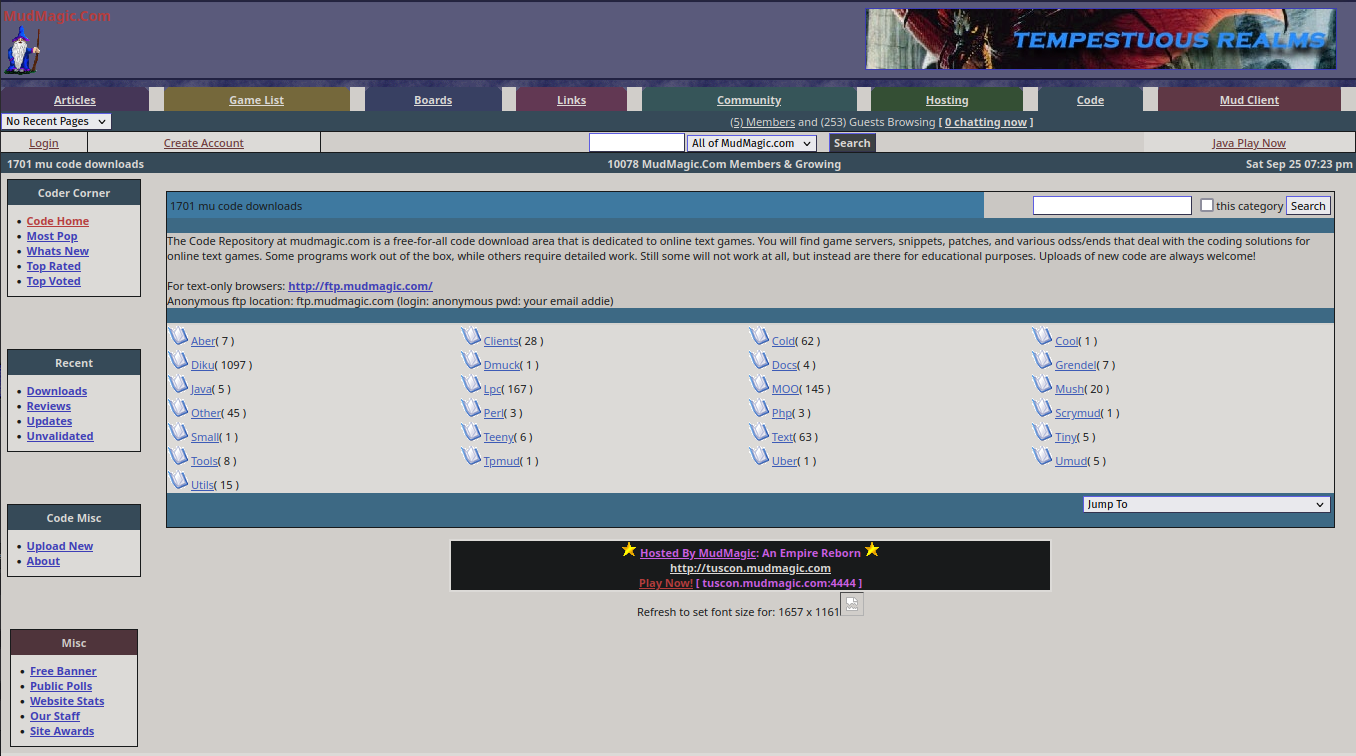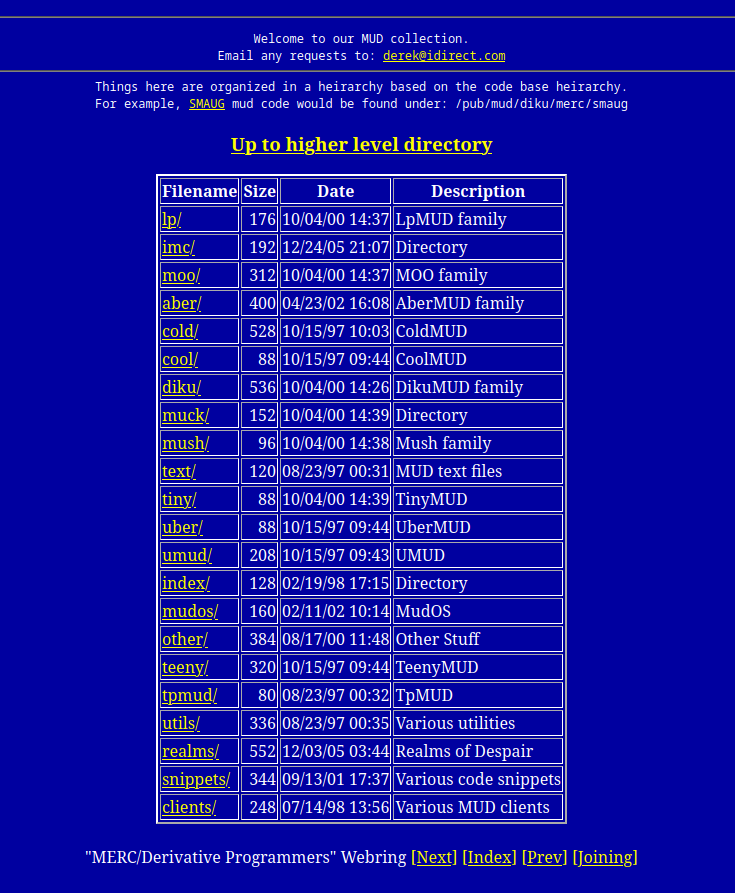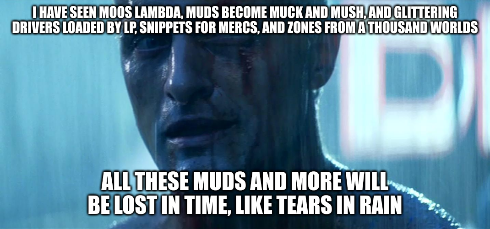The Digital Burning of Alexandria
As time rolls on staggering losses have been acrruing behind the scenes. Quietly, slowly, a bit at a time.
MUD code has been disappearing at an alarming rate over the years. Codebases, clients, tools, code snippets, patches, documents, drivers, areas/zones, and more used to be spread out all over the Internet. They could be found in USENET newsgroups (e.g., rec.games.mud), mailing lists, and some websites. Yet with the vast majority, were actually being stored on FTP servers.
In rare cases a MUD codebase might've maintained their own FTP site, such as CircleMUD did at ftp.circlemud.org. In fact, today, the lone remaining (major league) MUD codebase FTP site happens to be the CircleMUD one. Throughout the decades,they have managed to outlast every single other codebase, despite not even continuing development on their codebase since release version 3.1.
Instead, the place to find MUD-related code and documentation were the many publically accessible university FTP sites. Institutions like the University of North Carolina would host an FTP server at sunsite.unc.edu (now defunct) and many of them would have a /pub/games/muds directory. Of course there were many IT corporate websites that likewise hosted MUD files, such as parcftp.xerox.com which primarily stored LambaMOO when Pavel Curtis was working Xerox.
Sometimes the university itself was the home or origin of a MUD codebase. Famous examples include well known MUDs such as PennMUSH (University of Pennsylvania), AberMUD (Aberystwyth University), and Copper named after the Copper (Mountain) department at University of Colorado.
However, slowly over time, the FTP sites were shutdown, the mailing lists stopped, and usenet became a former shadow of itself. Relics of a bygone era.
Of course there were mirrors and archives, but they too, soon began to go offline, and disappear.
After the turn of the century, the early 2000s saw the scales flipped. With websites, which before having been one of the poorest sources of MUDs, becoming a final refuge. Sites like kyndig.com (which was later replaced by MudMagic), and ftp.game.org became the popular new means of archival. Unfortunately, many versions of codebases, code snippets, patches, manuals, LP MUD drivers, and areas and zones were already lost by this time.
 In early 2002 you might have seen something like this in your browser when visiting www.kyndig.com
In early 2002 you might have seen something like this in your browser when visiting www.kyndig.com
 By the end of 2003 until August of 2008 you might've been greeted with this webpage when visiting mudmagic.com
By the end of 2003 until August of 2008 you might've been greeted with this webpage when visiting mudmagic.com
Another popular website, ftp.game.org, run by Derek Snider, was part of game.org, the home of a SMAUG-based MUD called Realms of Despair in 1996. Even from the start it began providing some MUD related files that did not have anything to do with Realms of Despair.
The site would undergo its most important revision by the start off 1999. By then ftp.game.org would act as both an FTP server and an enhanced web interface of the FTP directories and files.
 ftp.game.org would still sport this familiar look until the end of 2007. The site migrated then to ftpgame.org for a couple more years until 2009 when it too finally met its end.
ftp.game.org would still sport this familiar look until the end of 2007. The site migrated then to ftpgame.org for a couple more years until 2009 when it too finally met its end.
Once again, some mirrors and other archives began to popup in the late 2000s, such as mudbytes.net (which is still active as of the time of this article) which saw many uploads to the site from 2006 to 2008, and then a slowdown in 2009.
Occasionally a random website might offer some old files, sometimes even ones that haven't been seen in a long time. However, there is so much that has been lost and may no longer be recoverable.

To give an example, despite years of searching, here at the MUD Institute we have yet to get our hands on a pre-LambdaMOO release of the MOO codebase. It could very well turn out to be that the last remaining digital copy was lost to us years ago. Even finding a version of LambdaMOO prior to 1.61 has turned out nothing but dead links after so many years.
However, new discoveries are made all the time of lost cities and ruins throughout the world. Perhaps, in this digital age, we may one day yet recover, that which we believe to have been lost forever.
In that spirit, Ad Fortuna.
